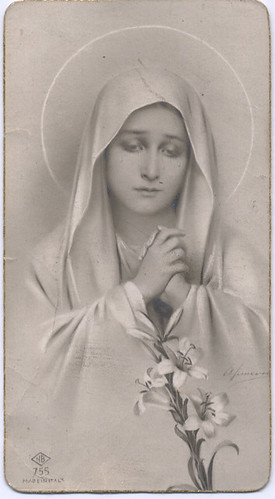This is actually a "spinoff" from a discussion which I'm having with a commenter on Paul's Masterful Blog; see here for the original comment thread. For now, enjoy... and I'll set my brain a-stirring for the next installment, especially re: practical discernment of good and evil in our world.
If I understand Oliver's question/objection at all, it seems to involve this:
"In all this talk about [x] being good because God willed it, or that God willed [x] because it was good, or that God's will of [x] and the goodness of [x] flow from the Divine Nature of God, which is Goodness itself: what, exactly, IS goodness? We've talked about it and about its origins, but what is it? What does it look like, and how can we use it to identify the good from the evil?"
The problem is not that there are so few ways to go about this, but that there are so many! Here's only one of them:
A. A supremely perfect God exists.
Summary (and this leaves out *scores* of details! Ask about them individually, if you must...):
1) No object can be its own cause.
2) Causation implies change, and vice versa.
3) Any uncaused object is necessarily eternal.
4) Any uncaused cause is equivalent to existence per se.
5) Any uncaused cause must be unlimited and unique.
6) Our universe contains examples of changeable, non-eternal objects.
7) Ergo, an uncaused cause is required, as per #3-5.
B. Theism, by its recognition of this necessity (described in (A)), is the most reasonable paradigm by which the world and its dynamics can be explained. Since the "uncaused cause" conclusion is in harmony with theism, and not with atheism (which denies the uncaused cause) and agnosticism (which denies the knowability of the uncaused cause), it is reasonable to adopt a theistic paradigm until more compelling evidence/reasoning suggests otherwise.
C. Christianity is the most self-consistent paradigm which is also in harmony with theism and with the facts available to us in the natural world; thus, it is reasonable to assume Christianity as our paradigm until more compelling evidence/reasoning suggests otherwise.
D. Catholicism is the most self-consistent paradigm which is also in harmony with Christianity and with the facts available to us both in the natural world and within the contents of Divine Revelation (see (E), below); thus, it is reasonable to assume Catholicism as our paradigm until more compelling evidence/reasoning suggests otherwise.
E. Catholicism has confirmed that various facts have been communicated by God to us (i.e. Divine Revelation, or "The Sacred Deposit of Faith")--among which are guidelines for discerning the good from the evil.
F. Catholicism has confirmed that our human nature, though wounded by Original Sin, is still capable of recognizing truth (a.k.a. "the good") through the use of human reason, and of "tasting" truth through the use of human instincts and emotions--though these faculties (especially the latter) are clouded and fallible. Thus, it is possible (to a limited extent) to have an awareness of that which is good (or evil), even without explicit help from Divine Revelation.
G. Given all of the above, the most reliable way to discern the good from the evil is through examination of (and implementation of guiding principles given by) the Divine Revelation entrusted to man through Christ's Church; personal "awareness" might well be useful, but the fallen nature of man has rendered it weakened and less than strongly reliable.
I'm well aware of the fact that this schema leaves "grey areas" of morality; but given our fallen human condition, there's little hope of reprieve from that, this side of eternity. But you did ask.
So... go to it. Tear it apart at your leisure. :) My feelings won't be hurt by thorough examination (or even complete demolition) of my presented schema; just be logical about it, and do be polite, please. Life is too short to debate those who insist on being irritable and obnoxious.
Friday, June 19, 2009
Subscribe to:
Comments (Atom)

